Life in the US during the Great War
Women Welders
Women electric welders at Hog Island shipyard. These are the first women to be engaged in actual ship construction, in the United States.
National Archives Photo
At the beginning of World War 1, the United States maintained neutrality but offered supplies to the Allies. The industrial revolution had already changed the face of America with the US emerging as an industrial giant. The expansion of the Railroads helped knit the country together. The dynamics of the economy changed and a wealthy class was born along with a middle class and working class. The demand for workers caused a great migration from Europe, The labor class expanded with workers being drawn from the rural areas of the country to join the influx from Europe.
The new prosperity did not trickle down to the working class. Low wages and unemployment were rampant. Technology both created jobs and changed the worker's requirements causing long hours and child labor. Electricity, rail, and automobiles were becoming the norm. Craft guilds gave way to labor unions and women were entering the labor force.
Industrialized America played a major roll in the war effort. The new technology leads to a shocking carnage in war efficiency. Airplanes, deadly gas. zeppelins, torpedos, submarines, portable machine guns, and flame throwers became commonplace tools of war. Mass production meant that weapons could be produced quickly and in large quantities.
The sudden departure of men left many jobs to be done. Women filled the void.
Running the Farm
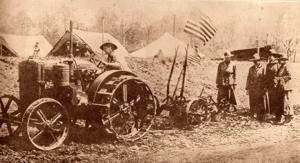
Plowing the Fields
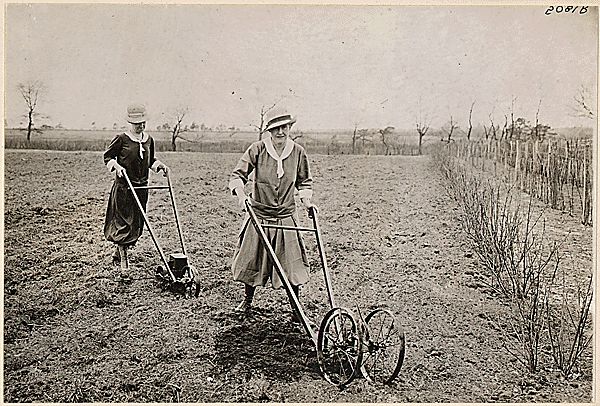
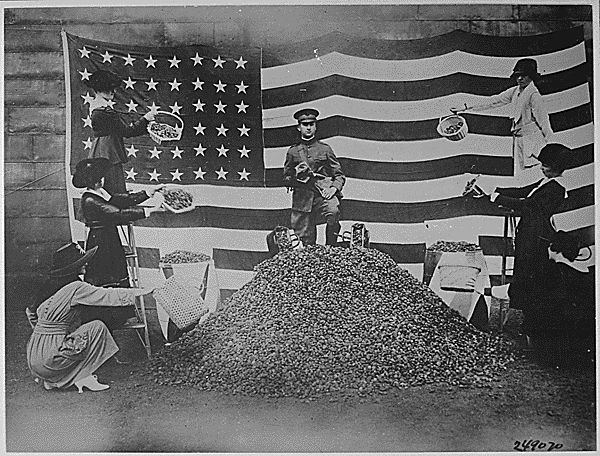
American chemist James Bert Garner discovered activated charcoal made from natural fibers such as peach pits would help counteract the deadly effects of chlorine gas. A gas mask was developed with a chamber filled with special charcoal, other vegetable fibers, and anti-gas chemicals. The mask covered the nose and mouth.
Four breaths of the deadly chlorine gas would kill. The first breath caused spasms, the second caused mental confusion, the third resulted in unconsciousness and the fourth resulted in death.
Women collecting Peach Pits for the war effort
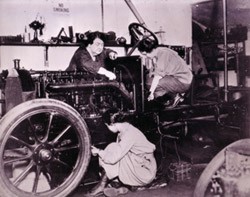
Auto mechanics
War for the Humanities photo
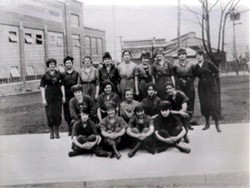
Munition factory workers
National Archives Photo
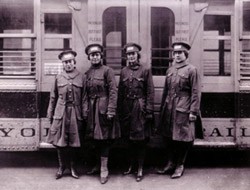
Railway conductors
National Archives Photo
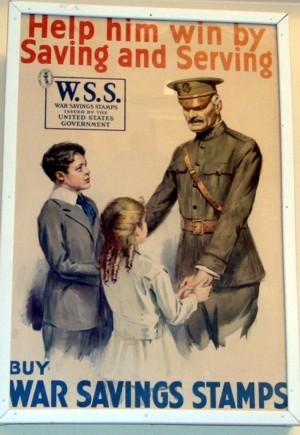
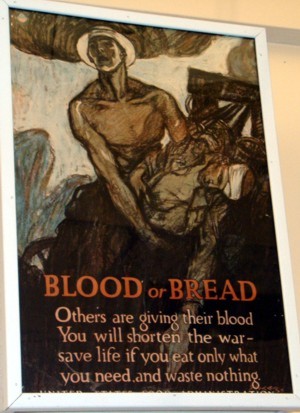
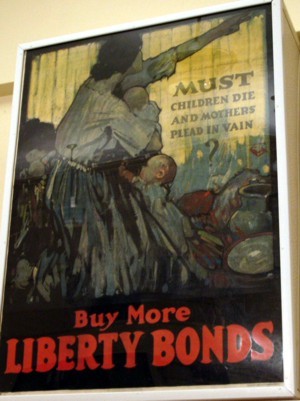
WW1 posters from Indiana War Memorial Archives
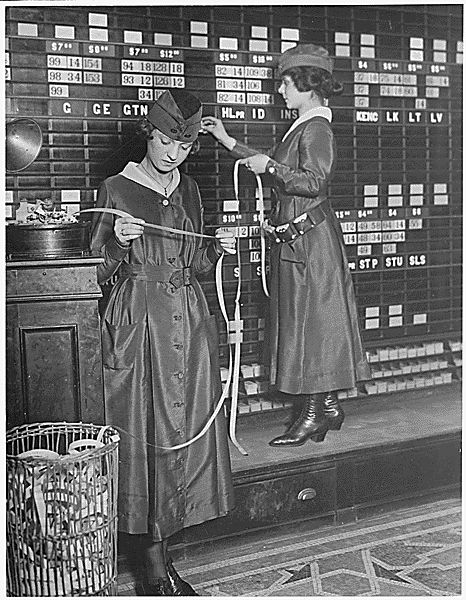
Girls operate stock boards at Waldorf-Astoria. The Waldorf-Astoria Hotel is employing girls to operate tickers and stock exchange boards. The Waldorf is the first to employ girls in its various departments, in order to release men for war work. National Archives Photo
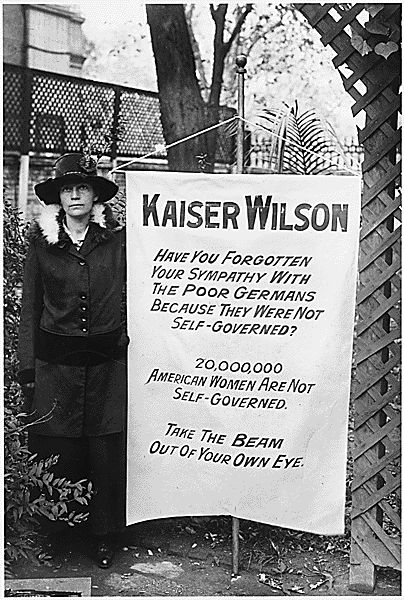
Suffragette banner. One of the banners of the women who picketed the White House and Capitol. Women's suffrage was effectively halted during the war, National Archives Photo
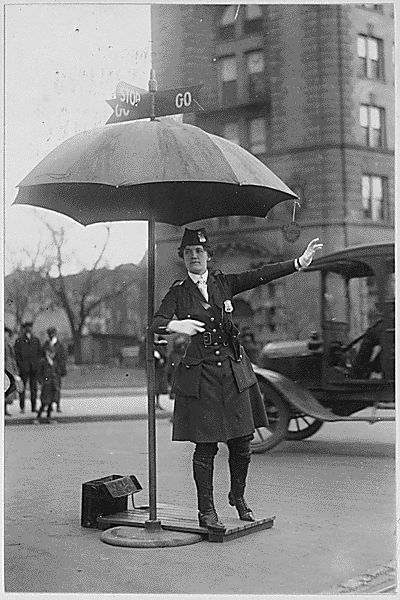
Traffic Cops
National Archives Photo
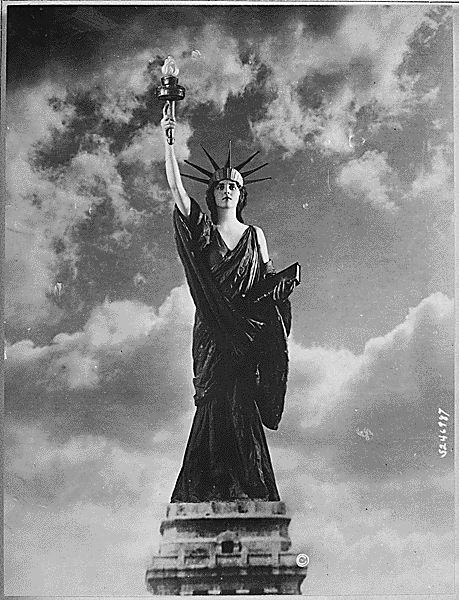
Save Her From The Hun
Buy Liberty Bonds.
From a photograph posed for by Miss Francis Fairchild, a 1918 debutante of New York, on behalf of the Fourth Liberty Loan. Underwood and Underwood. National Archives Photo
Home Front posters from the National Archives
US Army Signal Corps photos
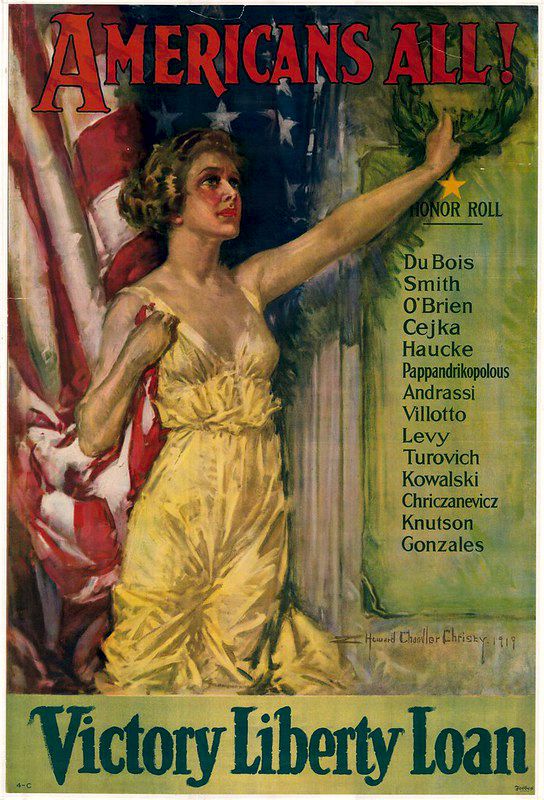
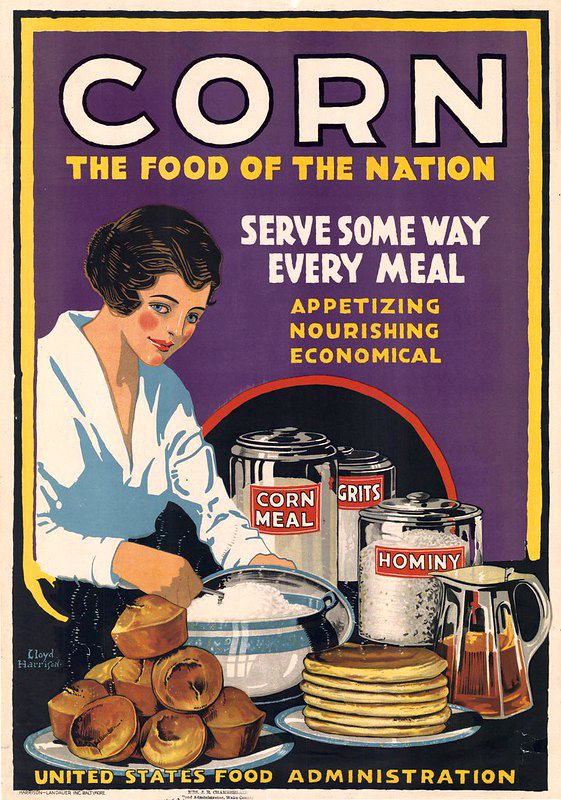
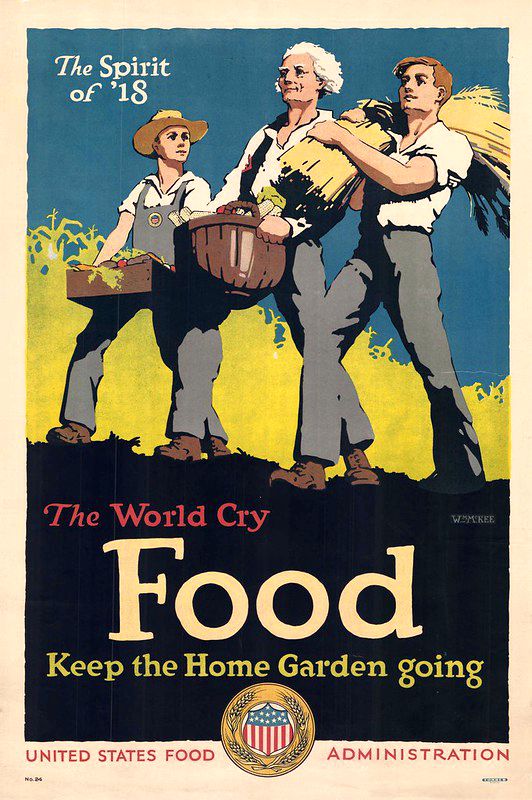
A Mother's story:
The following heartfelt poem is shared by the grandson of Sara Elizabeth Ferguson, the mother of seven boys. It is an excerpt from the diary she kept during WW1.
"The day before the armistice was signed I saw by the papers that, if it was signed, all the whistles would blow, and everyone would be in town to rejoice. Now, we lived about 30 mile from St. Joseph, Mo., and the night before I lay in what seemed a vision of what was going on over all the world. I got up early and told my husband "I am going to St. Joe." I told him "I heard bells and whistles all night long." He only laughed as usual, but I and my 5 year old boy went. When we got close enough, sure enough, it was so, as I had said. Well, I walked the streets laughing and crying in turns. I was like all the rest. The boys hadn't got back but the way was now opening up so they could."
"The other poem came to me when I was sitting in the yard at twilight looking in the window at our service flag, and is as follows:"
There's a service flag in the window,
a wonderful flag of stars.
I love to sit in the twilight
and gaze at that flag of ours.
A service flag in the window
pressed close to the windowpane.
It shall stay in all its glory
till the boys come home again.
“Boys," you say, "All your sons?”
Yes, three of them, noble boys each one.
They are fighting for you my brother,
fighting for you and me.
Fighting to down all tyrants
that the world be safe and free.
trying to right a world's great wrong,
that we have a fit place to live in, you see.
They are fighting for you, my sister,
perhaps somewhere in France.
to capture the Hun they are fighting,
awaiting the tyrant's advance.
Let's us all ask God to protect them
protect them in sunshine and rain,
While I keep the flag in the window
pressed close to the windowpane.